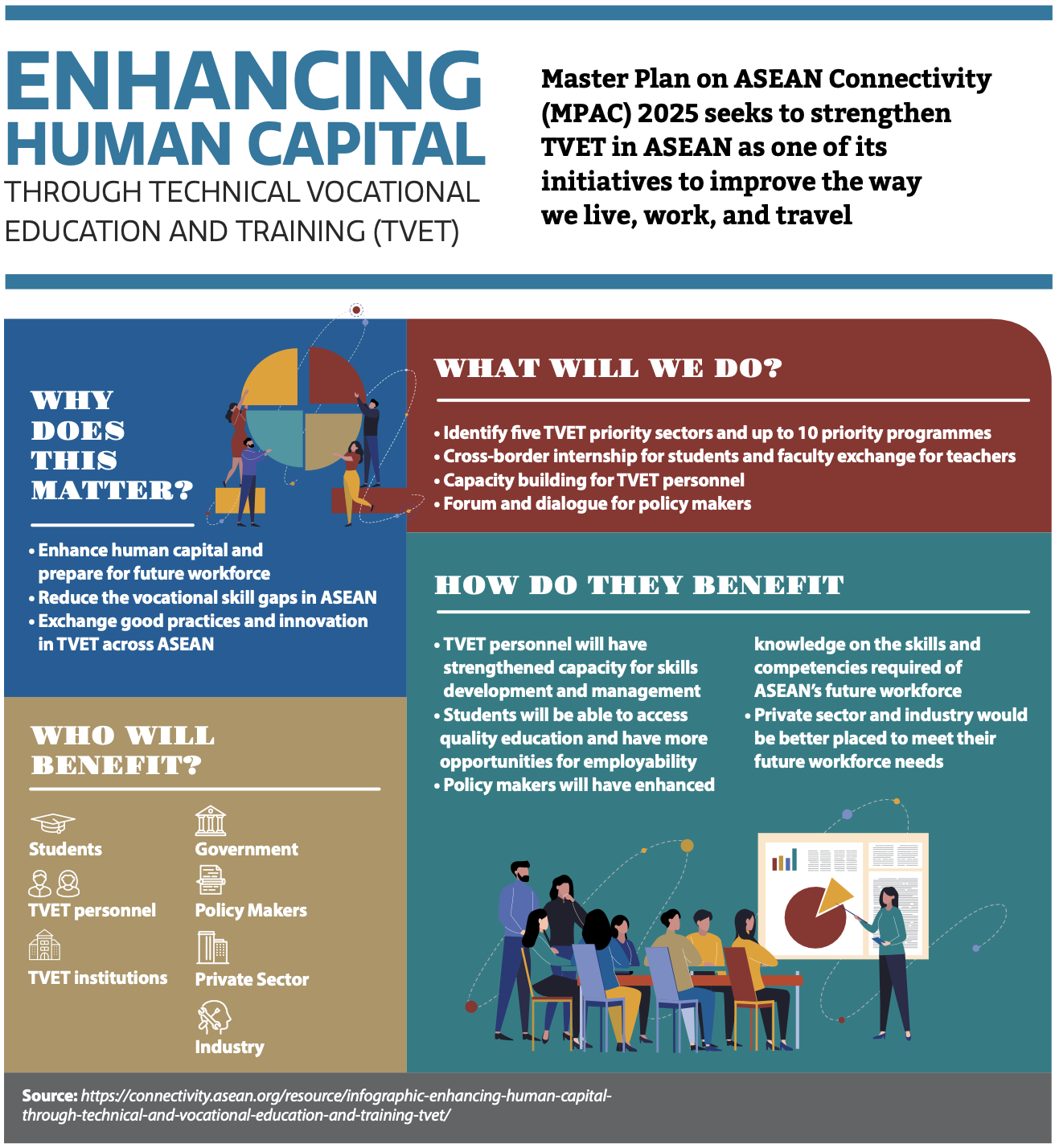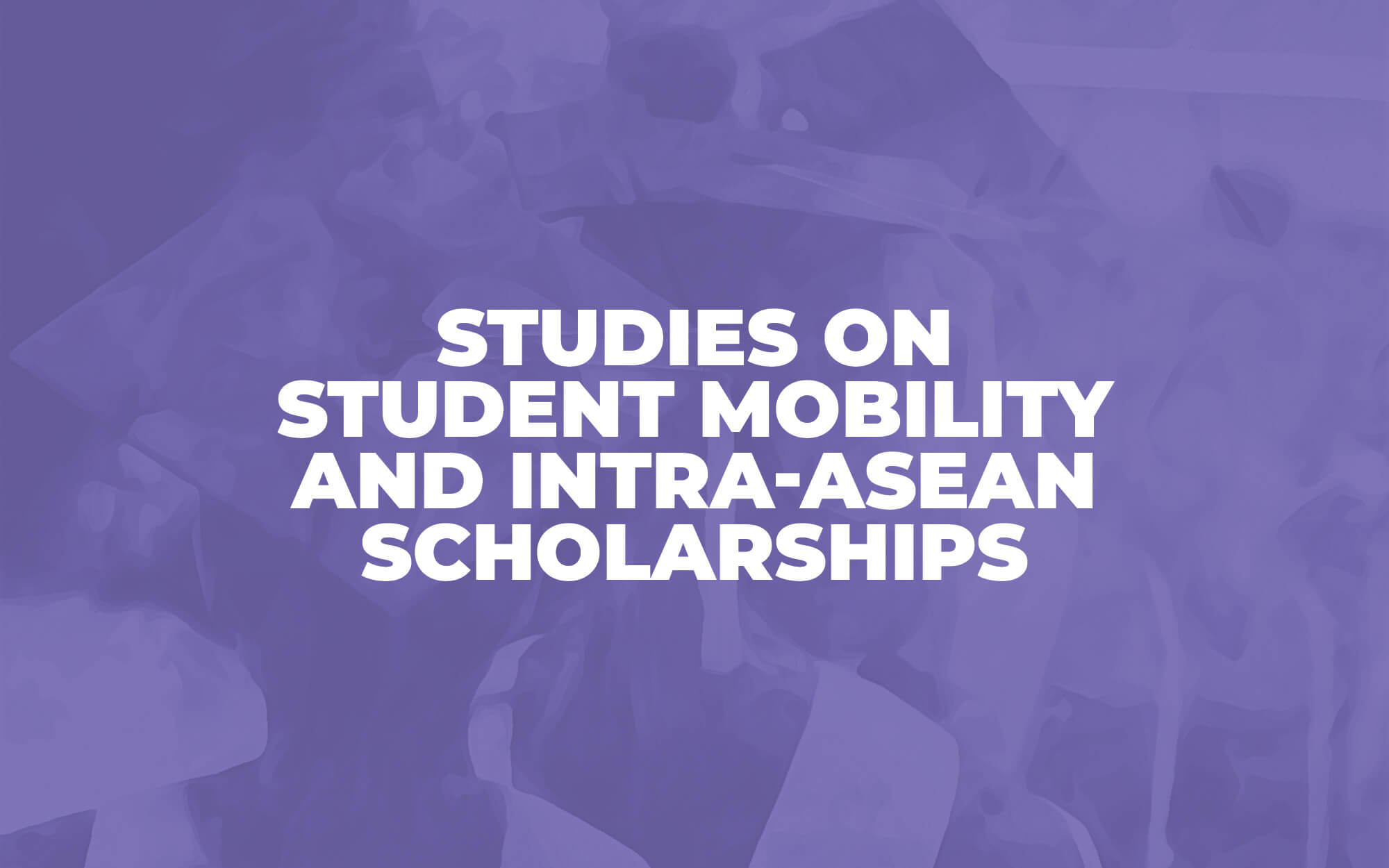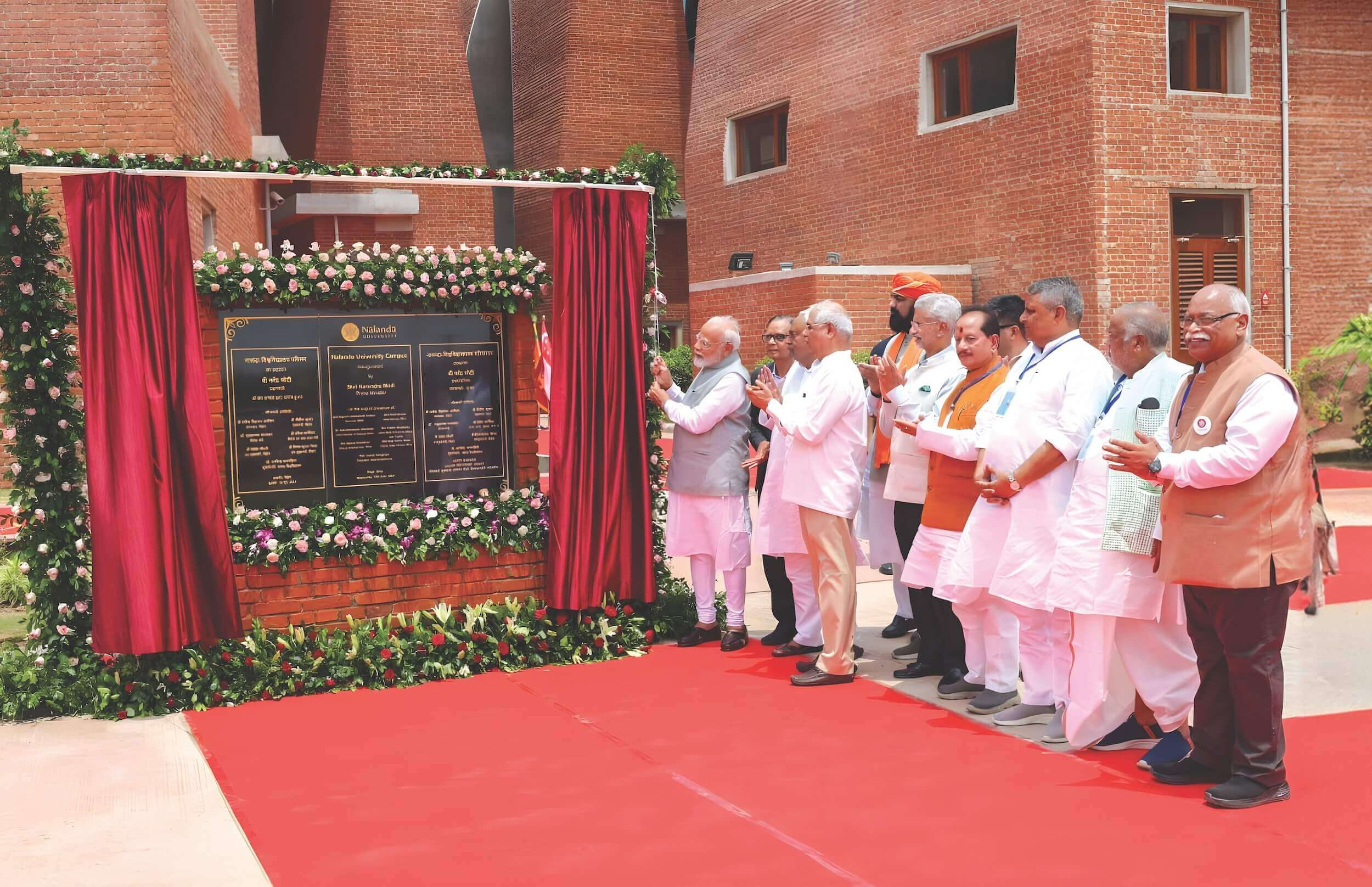




Human resources development has been on the agenda of ASEAN since its formation in 1967. The 2008 ASEAN Charter reaffirmed the development of “(...) human resources through closer cooperation in education and lifelong learning (...)” as a key purpose of the ASEAN community.
And in 2015 the ASEAN Socio-Cultural Community (ASCC) Blueprint 2025 listed the promotion of lifelong learning, the development of a system of continuous training and retraining, and the establishment of “ASEAN as a centre for human resource development and training” among its strategic measures. In recent years, just as the ASEAN community began to take shape and increasingly live up to its promise, the world entered a new era of change and disruption. One of the principal drivers of this change is the parallel advent and commercialisation of groundbreaking technologies, often described as the fourth industrial revolution or industry 4.0.
For ASEAN businesses and industry, advances in the application of digital technology hold great potential. Further progress in automation can boost labour productivity, reduce costs, and vastly improve operational efficiency. Digital technology supports the development of innovative products and services tailored to specific customer demand. For many ASEAN business leaders, the question is no longer whether they should engage in industry 4.0, but how to secure access to human resources with the right competencies to manage the transition.
For ASEAN governments, a future in which economic success is built on the mastery of advanced technology and less on the abundance of cheap and low-skilled labour poses formidable challenges. Influential studies have raised the prospect of dramatic transformations in the labour markets in the ASEAN region as routine manual jobs become displaced and a larger share of ASEAN jobs—one study estimated 57 per cent—comes under threat of automation.
More recent analyses provide a more nuanced picture. In the longer term, losses in manual and routine jobs may be more than offset by the emergence of new occupations and a rising demand for non-routine jobs that build on human cognitive strengths.
Even this more balanced outlook, however, leaves little doubt—as technology advances, labour market demand in ASEAN will change. Offering the citizens of ASEAN Member States opportunities for personal development and access to decent work will require dynamic efforts to advance all aspects of lifelong learning. In the era of industry 4.0 the strategic measures of the ASCC Blueprint 2025 are becoming ever more important.
TVET 4.0—Providing ASEAN Competencies for the Future
Industry 4.0 concerns businesses worldwide. In Germany, too, a very practical-oriented technical and vocational education and training (TVET) approach has to be modernised to keep up with the structural changes in industrial production.
In ASEAN Member States, employees must acquire new basic competencies that make them more versatile and adaptive to change, empower them to work with increasingly intelligent machines, or give them a competitive edge over these machines. These competencies include: (i) foundational skills such as sound numeracy, reading comprehension, and the capacity for self-directed learning; (ii) soft skills such as the abilities to communicate, work in teams, and engage in complex problem solving; and (iii) basic digital skills. In addition, employment will continue to depend on competencies related to the specific job and and its requirements.
TVET, especially the dual system of schooling and on-the-job training as it is practiced in Germany, is widely credited for providing skilled workers with broad competencies, arming them with the knowledge as well as the practical skills to perform effectively in the workplace.
As part of lifelong learning, TVET consists of education, training, and skills development on a wide range of occupational fields, production, services, and livelihoods. It can take place at secondary, post-secondary, and tertiary levels, and includes work- based learning and continuous training and professional development.
Today, when companies develop new high-tech production facilities in the ASEAN region, TVET is often an integral part of the investment. Innovative service providers cater to human resources development for the IT industry. “Dicoding Indonesia” was founded in 2015 as a platform to enable young people from various backgrounds to learn coding and qualify as professional programmers. Working with TVET schools, Dicoding has since attracted more than 140.000 IT developers from all over Indonesia with its programme. The start-up was awarded the ASEAN Business Award 2019 in the category of “skills development.”
Public TVET systems can make an important contribution when it comes to providing qualifications in the era of industry 4.0. A comprehensive research project of the German Federal Institute of Technical and Vocational Education and Training recently found that more than 80 per cent of enterprises see an equal or increasing demand for skilled workers due to the impact of digitalisation. However, the qualification and competency requirements and the urgency of adapting these differ widely between occupations. While tasks in many occupations become more complex, they do not necessarily require higher qualifications. Instead, they may require new skills, such as an understanding of integrated production processes and systems, or advanced digital skills—skills that can be attained in technical education and work-based learning.
For the TVET system, the findings imply a need for continuous reform, the speed and depth of which differs by occupation. It concerns the development of modern didactics and the cooperation of different places of learning including schools, companies, and inter-company training centres. Continuous qualification assumes a new relevance.
TVET 4.0—Providing ASEAN Competencies of Today
For TVET practitioners across the ASEAN region today, the reform agenda of industry 4.0 is only beginning to emerge. Whereas some ASEAN Member States occupy leading places in global comparisons of digitalisation, others remain far less advanced. Compared to other regions of the world, the uptake of technologies related to industry 4.0 has so far been slow. This is particularly true for micro-, small, and medium-sized enterprises (MSME), the backbone of ASEAN economies. MSME offer between 50 per cent and 90 per cent of jobs in ASEAN Member States. So far, only a small fraction of MSME (16 per cent) uses digital tools.
While current data on skills needs in ASEAN remain scarce, a look at the global level indicates a strong and even rising demand not only for engineers or IT experts, but also for skilled trades such as welders, mechanics, and electricians. In OECD countries, most of the top ten in-demand occupations today require post-secondary training but not always a full university degree. Mid-skilled roles represent 40 per cent of all jobs, and demand for them is growing.
The importance of TVET as a provider for many of the most highly sought-after occupations is widely accepted in ASEAN Member States. Yet, many of the school- based TVET systems of the region have long fallen short of expectations. In a 2014 employers’ survey, only 53 per cent of respondents agreed or agreed strongly that TVET systems match their skills needs— though the rate was 90 per cent in some ASEAN Member States and merely 30 per cent in others.
Among the most pressing challenges of underperforming TVET systems are a shortage of adequately trained TVET personnel (especially those with practical competencies and industry experience), a lack of adequate funding, as well as related deficits in teaching materials and equipment of TVET schools.
The Future ASEAN Agenda for TVET
Modernising ASEAN TVET systems, improving the quality of teaching outcomes, and synchronising the development of TVET with technological progress and changing labour market needs require a determined effort of all stakeholders. As demonstrated by leading TVET systems in ASEAN and beyond, the most important engine for change is the direct involvement of business and industry in the planning and delivery of TVET—at the national level as much as at the level of individual TVET schools and colleges.
Recognising the need for action, in 2018, the ASEAN Secretariat with support from the German government’s Regional Cooperation Programme for TVET in ASEAN or RECOTVET initiated a regional learning process. The high-level policy dialogue, “Business and Industry Cooperation in TVET—Towards a Better Practice for ASEAN,” brought together leading decision-makers from TVET line ministries with representatives of business and industry from all over the ASEAN region. At the meeting, a working group of 20 TVET champions from chambers, business associations, and companies was asked to develop action-oriented policy recommendations to make TVET in ASEAN fit for the future. In March 2019, the group finalised 45 recommendations covering nine thematic areas—from enhancing the quality of TVET regulations and strategies to strengthening the leadership of business membership organisations in TVET and deepening the collaboration of TVET schools with business and industry.
The final document, the “Future ASEAN Agenda for TVET,” was mentioned in the Chairman’s statement at the 34th ASEAN Summit in June 2019 and has been brought to the attention of ASEAN senior officials for labour and education as well as the ASEAN Business Advisory Council.
To continue its work as a business interest group for the promotion of TVET, the regional working group has since constituted itself as the ASEAN Future Workforce Council.
Examples from all over the ASEAN region are a testament that the promotion of business and industry participation is today a priority of ASEAN governments concerned with TVET.
In 2018, for instance, the government of Malaysia formed the TVET Empowerment Cabinet Committee with the participation of its seven ministers and a technical chairman from the Federation of Malaysian Manufacturers. As part of its TVET Empowerment Plan, the Committee envisages a national TVET coordinating body, a sustainable financing model, as well as a national singular TVET brand that promotes TVET as a mainstream educational choice. The plan envisions the active involvement of the industrial sector in TVET, from student recruitment via curriculum design, to TVET delivery and job placement.
Other examples include Cambodia’s new Skills Development Fund which provides co-financing for measures to
align TVET outcomes to labour market demand. The revised labour law of Viet Nam provides a legal basis for and encourages companies to engage in cooperative training, thereby strengthening the practical orientation of TVET. Countries like Thailand and, more recently, Indonesia, provide tax incentives for companies that invest in the qualification of in-company trainers or dual or cooperative training measures.
The Road Ahead
As ASEAN Member States tackle the complex task of TVET reform to empower ASEAN human resources for today and tomorrow, TVET cooperation between Germany and ASEAN as well as between the ASEAN Member States can make an increasingly relevant contribution.
Combining resources from ASEAN Member States at different stages of TVET development, as well as the private sector, academia, international organisations, and development partners, ASEAN, with the active participation of its Secretariat, can provide an innovative platform for learning and exchange, agenda setting, as well as cooperation in the interest of the ASEAN Community.
The SEA-TVET regional exchange programme; publications like Standard for In-Company Trainers in ASEAN Countries and SEAMEO Regional TVET Teacher Standard; and training modules and materials on topics such as Fit for Industry 4.0 indicate that outcomes of regional TVET cooperation can be both tangible and of practical relevance to TVET systems of ASEAN Member States.
With SEA-VET.NET, a platform developed and hosted by SEAMEO VOCTECH, the TVET centre based in Brunei, the ASEAN region today has access to a unique source of information on TVET systems development.
Building on the initiative of the Philippines to establish an ASEAN TVET Council, ASEAN Member States can take the next important step of overcoming the institutional fragmentation that has long characterised the regional TVET discourse and establish, at the ASEAN level, a public-private partnership for TVET.
As it complements and supports dynamic TVET reforms in ASEAN Member States, Germany’s cooperation with ASEAN for TVET 4.0 can help unlock the contribution of TVET to lifelong learning. Similarly, it will benefit the development of ASEAN as a centre for human resource development and training, as envisaged by the ASCC Blueprint 2025.









